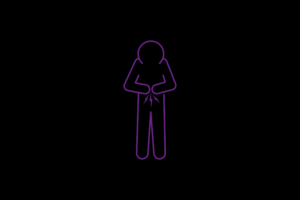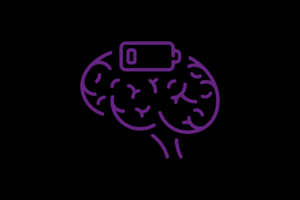Wellbeing is simply about ‘being well’. We will all have a different idea about what being well looks like for us. Our idea about being well might also change depending on the situations we are in or the experiences we have in our lives. For example, at some points in our life being well might mean thriving, doing the things that we enjoy and feeling healthy and secure physically and mentally. We might also have times in our life where we have difficult experiences (for example, bullying, health conditions, someone close to us dying or trauma), being well during these times might mean struggling but having the support and capacity to overcome these challenges. This means that ‘wellbeing’ can sometimes be hard to describe and to measure.
In the past researchers have taken ideas about wellbeing that have been suggested by neurotypical people and used these to measure wellbeing in autistic people. Recently there has been more research by autistic researchers into what wellbeing means for autistic people.
Based on this research and from asking young people what makes them happy we have come up with the following list:
- Personal Fulfilment: Personal fulfilment can come from being able to practise and enjoy your interests. This might be doing activities like gaming, watching your favourite programme or going to the park because you find them fun. Doing activities that give you a sense of achievement can be beneficial for wellbeing; this might be completing a computer game, taking something apart and putting it back together or adding to a collection. Personal fulfilment can also come from learning new things about your interests and gaining knowledge. Having the opportunity to be creative and imaginative can also help people feel well. The young people we asked told us they express themselves through writing, drawing, making youtube videos and lego. Many of the autistic adults within wellbeing research also explained how important their spirituality, philosophy and sexuality were for their sense of personal fulfilment wellbeing.
- Stress reduction: Strategies that help with reducing stress are really important for wellbeing. This might mean the people around you making changes to the environment to reduce your stress. For example, having your sensory needs understood and met are important for stress reduction. Having a clear structure or routine that you have had a say in setting yourself (rather than always having someone else set the structure for you) is also important for wellbeing. Stress reduction might also mean doing activities that help you feel calm (for example going for a calming walk, listening to music or gaming).
- Overcoming the difficulties caused by society: Many of the challenges faced by autistic people relate to difficulties caused by society. Having the support and resources to aid you through and recover from these challenges, whether this be through your community, family, trusted friends, mentors or talking therapists, can be helpful for wellbeing.
- Self-Discovery: Receiving an autism diagnosis and understanding what your diagnosis means to you can also be really helpful in supporting wellbeing. Unfortunately, because of misconceptions in the society, the way autism is sometimes diagnosed some young people might feel ashamed of being autistic so this might be a process that takes time.
- Acceptance: Acceptance and celebration of difference have been found to be key to autistic wellbeing.
See messages from autistic people about this here.
- Connection and sharing interests: Sharing interests with like minded people, particularly autistic people can be supportive for wellbeing. This could be through online forums, groups and conferences. Autistic spaces can be a safe place to feel acceptance, build friendships, and have your say in discussions about autism.
‘I have made so many friends from the community, more than I did in school, Spectrum Gaming is a safe place where I can be myself and be happy’
- Relationships: Relationships with both family and friends can have a huge impact on autistic wellbeing and belonging. Many of the young people we asked spoke about gaming and voice chats with friends making them happy. The young people we asked also spoke about spending time with pets and animals as making them feel happy. They described that pets were accepting, gave purpose and were nice to cuddle!
- Advocacy (including self advocacy): Advocacy is where you are able to speak for yourself and communicate what is important to you and your needs (or the needs of others). The use of advocacy to support achieving life goals was mentioned as being beneficial for wellbeing in autistic people. When it was seen as helpful, external support from people such as mentors and tutors was mentioned as being important with supporting positive mental health. Autistic rights, advocating for oneself and the neurodiversity movement have also been spoken about as being a big part of autistic wellbeing.
Although there are things that you can do to improve your wellbeing, such as engaging in activities that you enjoy, the environment that you live in can also have a huge impact. This means that often to improve a person’s wellbeing, changes need to be made to their environment. For the autistic community this could mean educating people about autism, sensory adaptations and creating spaces for autistic people to connect and share interests.



